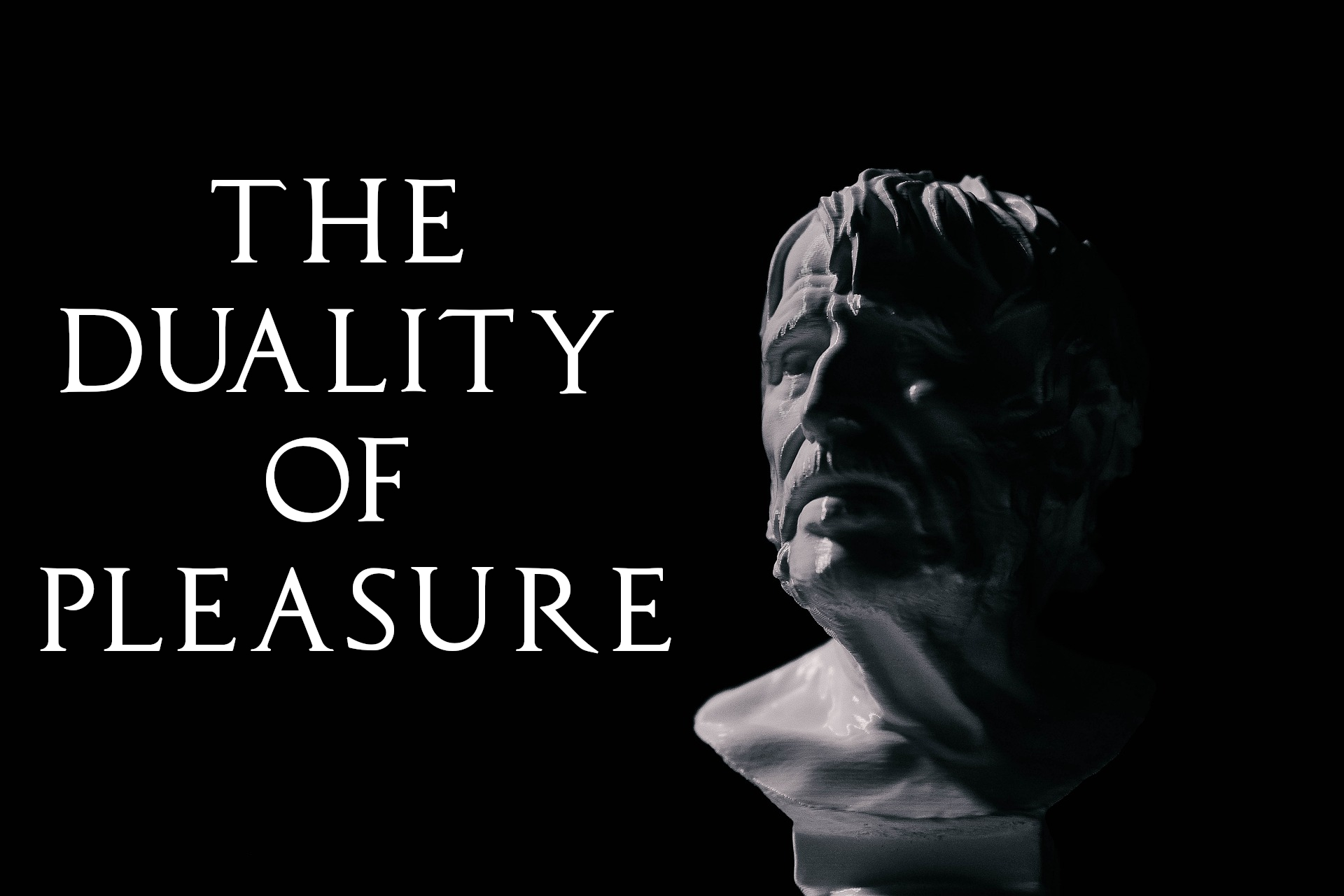
Since I read the Moral Letters to Lucilius by the Stoic philosopher Seneca a few years ago, there’s one excerpt I wish to share that’s been on my mind ever since:
“there are two kinds of pleasures. Disease checks the pleasures of the body, but does not do away with them. Nay, if the truth is to be considered, it serves to excite them; for the thirstier a man is, the more he enjoys a drink; the hungrier he is, the more pleasure he takes in food. Whatever falls to one’s lot after a period of abstinence is welcomed with greater zest. The other kind, however, the pleasures of the mind, which are higher and less uncertain, no physician can refuse to the sick man. Whoever seeks these and knows well what they are, scorns all the blandishments of the senses.”
Seneca here reflects his philosophical perspective on pleasure, particularly the distinction between pleasures of the body and pleasures of the mind. After having read and reread this many times, here how I’ve broken it down:
- Two Kinds of Pleasures: Seneca identifies that there are two kinds of pleasures: those of the body and those of the mind.
- Pleasures of the Body: He notes that diseases can temporarily hinder or check the pleasures of the body, such as the enjoyment of food and drink. However, in a somewhat paradoxical way, he suggests that sometimes illness can intensify physical pleasures. For example, when a person is very thirsty or hungry due to abstinence, the relief of drinking water or eating food is experienced with greater enjoyment or ‘zest’ to use his terminology.
- Pleasures of the Mind: Seneca contrasts these physical pleasures with pleasures of the mind, which he considers to be higher and less uncertain. Pleasures of the mind are typically intellectual or spiritual in nature, such as the pursuit of knowledge, wisdom, or inner peace. He implies that these mental pleasures are not subject to the limitations that diseases impose on the body.
- Physicians Cannot Deny Mental Pleasures: Seneca suggests that even when a person is sick, no physician can deny them the opportunity to seek and experience the pleasures of the mind. Though illness may restrict us from experiencing physical pleasures, it cannot prevent us pursuing the open door of intellectual or spiritual well-being.
- Preference for Mental Pleasures: Seneca’s conclusion is that those who understand and seek the pleasures of the mind will ultimately disregard the sensory pleasures of the body. This aligns with Stoic philosophy, which values virtue and rationality over fleeting and often hedonistic physical pleasures.
As I’ve stated, the pleasures of the mind typically take on an intellectual or spiritual nature. Seneca encourages us to direct our focus towards intellectual and virtuous pursuits as a pathway to enduring and meaningful happiness, even when faced with physical suffering or limitations. This quote aligns with the Stoic belief that authentic happiness is found within the mind and one’s ethical choices, rather than in external, sensory pleasures.
If one has become acquainted with or savoured these abstract pleasures, as opposed to the fleeting physical ones, the concept of abstinence becomes an essential facet. Consider a scenario where physical exertion and the absence of certain comforts, such as a refreshing drink, intensify the pleasure through the contrast between discomfort and subsequent relief. This heightened pleasure is often described as being welcomed “with greater zest,” as the stark difference amplifies the positive sensation. Nowadays this psychological phenomenon is well established and can be explained by the concept of hedonic adaptation and contrast effects.
Hedonic adaptation, as observed by Seneca, is the human tendency to swiftly return to a relatively stable level of happiness or pleasure after experiencing changes or disruptions. This ancient insight stands as one of the earliest documented instances of hedonic adaptation in historical literature. It signifies that when we are consistently exposed to something pleasurable, we gradually become accustomed to it, and its impact on our overall well-being diminishes. However, when we’ve abstained from such pleasures for a time, as exemplified by refraining from cold water while toiling under the scorching sun, their return becomes more enjoyable due to the vivid contrast. Our senses and bodies become acutely attuned to the pleasure because of the recent discomfort, rendering it more intense and satisfying.
This phenomenon isn’t confined to physical pleasures alone, like the gratification of drinking cold water after a demanding day’s work. It extends to various other life experiences and comforts, whether it’s relishing a hearty meal after a period of hunger, luxuriating in a warm bath following a strenuous day, or simply savouring moments of relaxation after hard labour. Recognizing and cherishing these instances of heightened pleasure can enrich your overall sense of well-being and foster a deep appreciation for life’s simple joys. It serves as a poignant reminder of the significance of experiencing contrast and finding gratification in life’s small yet profound pleasures.
In the words of Seneca, not only are the pleasures of the mind fundamentally distinct from the more common pleasures of the body, but their attainment demands dedication and effort to fully reap their rewards. The price of knowledge takes time and commitment to amass, but the ultimate reward is the profound happiness experienced by those who know. Wisdom is not handed to us on a platter like a succulent Chinese meal; rather, it must be actively pursued, cultivated, and nurtured, much like a precious garden. It requires a patient cultivation of the intellectual soil, where the seeds of curiosity and inquiry are sown, and the weeds of ignorance are uprooted. The pleasures of the mind do not offer immediate gratification, akin to a sumptuous dessert. Instead, they mature slowly, much like a fine wine, with each passing day and every drop of knowledge absorbed.
We must bear in mind that within the context of Stoicism, there is indeed a distinction between pleasure and tranquillity, and the ultimate goal is often described as ataraxia or a tranquil, undisturbed state of mind.
Stoicism places a strong emphasis on achieving a state of inner tranquillity and freedom from disturbances (ataraxia) as the highest form of happiness. This state is attained through the practice of virtue, reason, and self-discipline. The Stoics acknowledge that pleasures of the mind, such as intellectual and moral satisfaction, play a significant role in achieving this state of tranquillity.
While Stoics do acknowledge that pleasures of the mind are preferable to bodily or sensory pleasures, it’s important to understand that the pursuit of these mental pleasures is ultimately aimed at attaining a state of inner peace and freedom from emotional turmoil. In Stoicism, true happiness is not dependent on external circumstances or fleeting pleasures but on one’s ability to maintain a serene and rational state of mind, even in the face of adversity.
So, to reiterate in closing, within Stoicism, the pleasures of the mind are valued and seen as superior to purely sensory pleasures. However, they are seen as a means to the end of achieving ataraxia, or tranquillity, which is considered the supreme happiness and the ultimate goal of the Stoic philosophy. The pursuit of a tranquil and undisturbed mind is central to Stoic ethics and well-being.

